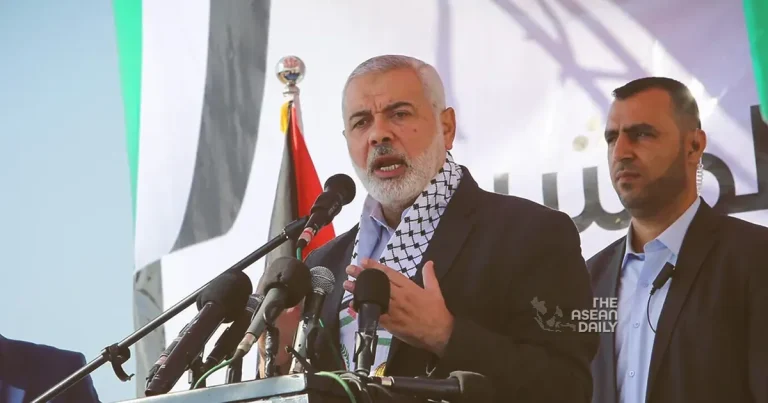31-7-2024 (CAIRO) Hamas has announced the death of its leader, Ismail Haniyeh, in what it describes as a “treacherous Zionist raid” on his residence in Tehran. The Palestinian militant group confirmed the news on 31 July, characterising the strike as a “severe escalation” that would fail to achieve its intended goals.
Iran’s Revolutionary Guards corroborated the report, stating that Haniyeh was killed in Tehran alongside one of his bodyguards. The Hamas leader had been in the Iranian capital to attend the inauguration ceremony of Iran’s President Masoud Pezeshkian on 30 July.
This startling turn of events comes less than 24 hours after Israel claimed to have eliminated a high-ranking Hezbollah commander allegedly responsible for a deadly attack in the Israeli-occupied Golan Heights. The timing of these back-to-back strikes appears to significantly diminish the prospects of an imminent ceasefire agreement in Gaza.
Hamas officials have responded to the news with a mixture of grief and defiance. Senior Hamas figure Moussa Abu Marzouk, speaking to Hamas-run Al-Aqsa TV, condemned the assassination as a “cowardly act that will not go unpunished”. Another prominent Hamas official, Sami Abu Zuhri, characterised the killing as a “grave escalation” aimed at breaking Hamas’ resolve, but insisted that the group would persist in its mission, expressing confidence in ultimate victory.
Haniyeh, who had been at the helm of Hamas since 2017, was a key figure in the organisation’s international diplomacy efforts. His role became particularly crucial following the Hamas-led attack on Israel on 7 October, which ignited the ongoing conflict in Gaza. Notably, Haniyeh had already suffered personal loss in the war, with three of his sons killed in an Israeli airstrike on Gaza.
Unlike many Hamas leaders confined to the blockaded Gaza Strip, Haniyeh’s base in Qatar allowed him greater freedom of movement. This mobility enabled him to act as a negotiator in ceasefire talks and maintain communications with Hamas’ ally, Iran.
The assassination of such a high-profile leader marks a significant escalation in the conflict and is likely to have far-reaching consequences for the region. It raises questions about the future leadership of Hamas and the group’s strategic direction moving forward.
Moreover, the strike on Iranian soil adds a new dimension to the conflict, potentially drawing Tehran more directly into the fray. The incident may strain Iran’s relations with Israel and its allies, further complicating the already volatile geopolitical landscape of the Middle East.




